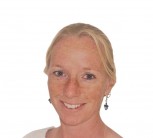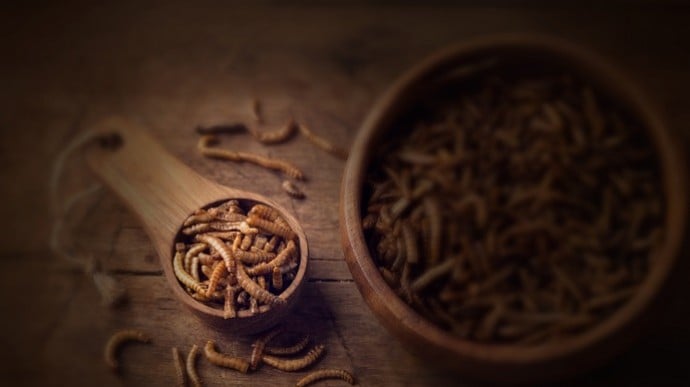The World Wide Fund for Nature (WWF) South Africa and the University of Pretoria’s (UP) Mammal Research Institute Whale Unit are partnering up to support research on southern right whales, which are facing a variety of new threats, not least the impact of a warming climate on their food supply.
The Whale Unit, which falls under UP’s Faculty of Natural and Agricultural Sciences, has been monitoring southern right whale populations since 1969. Using annual surveys, including photo-identification photography, their research is one of the longest continuous datasets for any marine mammal in the world. As such, it is an extremely valuable dataset that is of national and international importance.

Southern right whales rely heavily on their foraging success and stored energy supplies to support their reproduction and migration.
Up until about a decade ago, southern right whales had made a remarkable recovery from commercial whaling. But now, warming oceans and consequent changes to ocean processes appear to be having a negative impact on the available food supply. This is having a noticeable effect on the number of whales visiting South African shores.
In partnering with UP’s Whale Unit, WWF South Africa hopes to enable the facility to continue its vital research into the well-being of these iconic whales, which are at the heart of South Africa’s coastal tourism industry, generating both direct and indirect income for the country.
“Since commercial whaling stopped, the recovery of the southern right whale population was a great conservation success story,” said Dr Els Vermeulen, research manager at the Whale Unit. “But now, the science is telling us that these marine mammals are coming under renewed pressure from a more modern problem likely linked to climate change. Over the past decade, we have been finding that the whales are getting thinner, are calving less often and are leaving their breeding grounds earlier.”

Dr Els Vermeulen, research manager at the Whale Unit.
In October last year, a three-day aerial survey from Nature’s Valley to Muizenberg counted some 414 whales, among them 191 mother-and-calf pairs, mainly between De Hoop Nature Reserve and Walker Bay near Hermanus. This number is higher than recorded in 2019 and 2020, but remains well below what is regarded as normal.
In addition, since 2009, the number of unaccompanied adults (males, resting females and receptive females) has been noticeably lower, indicating that non-calving right whales are still not migrating to the South African coast as readily as they used to in years gone by.
A worrying trend is that whale mothers also appear to be leaving South African breeding areas earlier than normal, which could be having a negative effect on the chances of calf survival.

Warming oceans and consequent changes to ocean processes appear to be having a negative impact on the available food supply and his is having a noticeable effect on the number of whales visiting South African shores.
Southern right whales rely heavily on their foraging success and stored energy supplies to support their reproduction and migration. Their body condition (or “fatness”) is thus extremely important to ensure successful pregnancy and calf rearing. Recent research has shown that right whale mothers have decreased in body condition by 24% since the late 1980s, indicating clearly that their feeding has been less successful.
“We strongly believe this lack of energy reserves lies at the basis of the increased calving intervals and a reduced migration towards our shores of the non-calving individuals,” Dr Vermeulen said. “But in order to understand the dynamics behind this, we need to continue our ongoing research. We are deeply grateful to all the organisations and individuals who have supported this work over the years. It is now more important than ever for us to keep providing the information that will promote the protection and conservation of this iconic whale species.”
“There is no doubt that we are experiencing major changes in our oceans as a result of climate change, which in turn could have severe implications for marine species and livelihoods,” said Craig Smith, senior manager of WWF South Africa’s Marine Programme. “We need to understand these changes better to allow for improved forecasting and building of resilience for people and marine ecosystems. To this end, southern right whales may prove to be a very useful indicator for changes in our oceans. The funding of a long-term southern right whale dataset is priceless in helping scientists to understand these changes, and to help advocate for reduced greenhouse-gas emissions so that the southern right whale can continue to thrive along our coastline.”
WATCH: UP’s Mammal Research Institute Whale Unit & WWF partnership launch
You can support the conservation of southern right whales by symbolically adopting a whale. In doing so, you will be supporting whale research and conservation in South Africa. All funds raised go towards covering the costs of whale fieldwork. Find out more
Learn about the Whale Unit’s research
Dr Els Vermeulen
March 1, 2022

Dr Els Vermeulen has been a researcher at the University of Pretoria (UP) since her postdoctoral appointment in 2015. A Belgian national, she did her undergraduate studies at the University of Antwerp.
In 2017, she took the reins as research manager of the Whale Unit at UP. The unit is part of the University’s renowned Mammal Research Institute (MRI) and is an internationally established whale and dolphin research hub. “Considering the unit’s extensive knowledge base, I feel fortunate to be able to lead its work forward,” Dr Vermeulen says.
The Whale Unit was established in 1985 and has become a globally recognised leader in cetacean (whales, dolphins and porpoises) sciences. Researchers there investigate the ecology, population dynamics and behaviour of cetaceans from southern African waters into the Southern Ocean, with the principal objective of providing knowledge that will promote their conservation.
“The Whale Unit has a database on whales and dolphins that spans over 50 years,” Dr Vermeulen says. “These long-term databases on large mammal species are unique in the world, and provide a critical tool to study long processes such as climate change and its effect on wildlife. Making use of these databases ensures that they continue to grow, and allows me to assist in gaining a better understanding of anthropogenic impacts on the marine environment.”
Over the past 36 years, the unit has built a wealth of expertise, considerable long-term intellectual property and well-established knowledge bases, making it the most established cetacean research group in Africa. Being able to continue with this legacy gives researchers at the unit the opportunity to make a significant contribution to whale and dolphin conservation and management in a broad geographical region.
In terms of cross-faculty research, Dr Vermeulen collaborates with a UP genetics laboratory headed by Prof Paulette Bloomer, as well as the Department of Geography, Geoinformatics and Meteorology.
She regards the Whale Unit’s most recent research – which has shown the effects of climate change on the health, reproductive success and migration patterns of South Africa’s southern right whales – as a research milestone. Much of this research has been highlighted on the Research Matters website.
Dr Vermeulen has always been inspired by established academics in marine mammal research, as it is a highly competitive field and a difficult one to pursue
She looks up to Prof André Ganswindt, her line manager and Head of the MRI. “I admire the way he manages the MRI, creates a family feeling within the group, finds balance between work and personal life, and the way he provides guidance to students and other academics like myself. He is an effective and extremely qualified professional, yet a gentle, patient, down-to-earth person with whom it is a pleasure to work and collaborate with.”
Dr Vermeulen hopes to secure a permanent appointment within the Whale Unit and be able to grow the unit to the next level.
Her advice to school learners or undergraduates who are interested in her field is to follow their dreams. “Live the life you have imagined – in the end, it is not what you want, but how much you want it. Also remember, it is not always what you know, but who you know. So never cease to be a friendly, gentle person. It will stand you in good stead.”
Outside of work, she says she loves spending time outdoors with her two little children and her dogs. “Nothing brings more joy to my heart than seeing them play in nature.”
 Story
Story
Cricket à la king? How about a yellow mealworm burger? Foods that may previously have evoked a ‘yuck’ response are now firmly on the menu. Research into edible insects by the Department of Zoology and Entomology at the University of Pretoria (UP) is exploring how to rear and harvest this food of the future.
 Story
Story
A single query to ChatGPT uses as much electricity as burning a light bulb for about 20 minutes. Multiply that by the millions of requests that this artificial intelligence (AI) chatbot receives each day, and the environmental impact is ominous.
 Story
Story
University of Pretoria (UP) researchers have found that the antioxidant content of certain types of tea can be likened to that found in recommended portions of fruit and vegetables.
Copyright © University of Pretoria 2025. All rights reserved.
Get Social With Us
Download the UP Mobile App